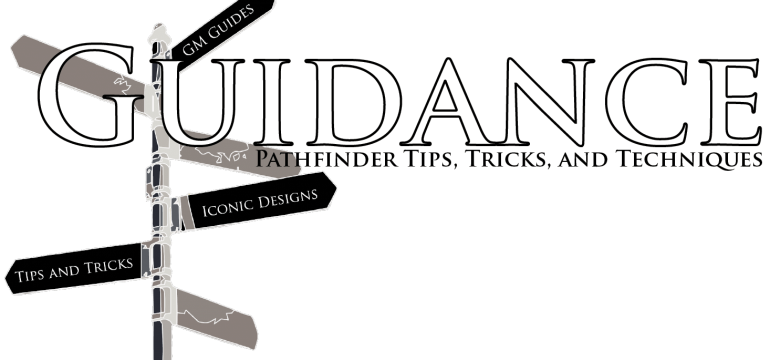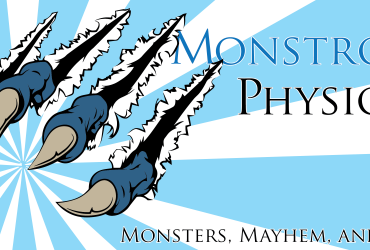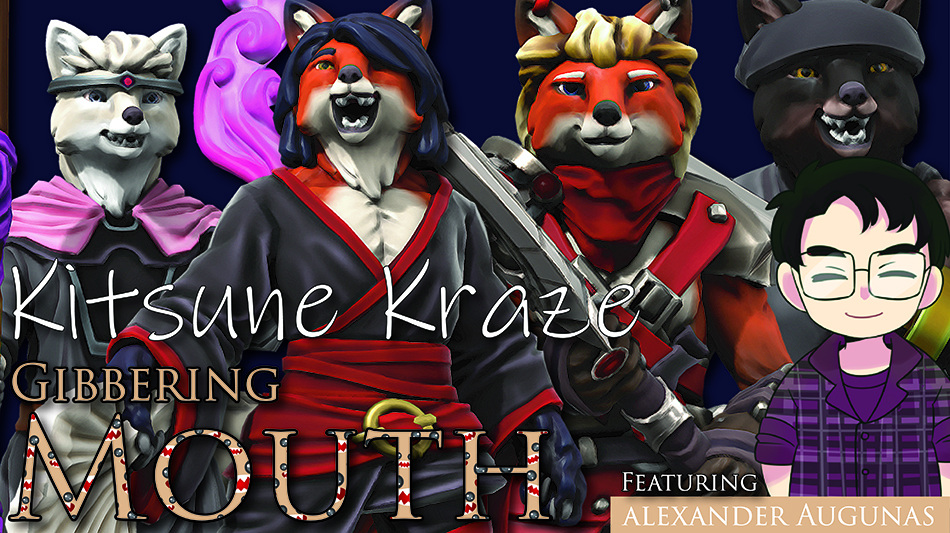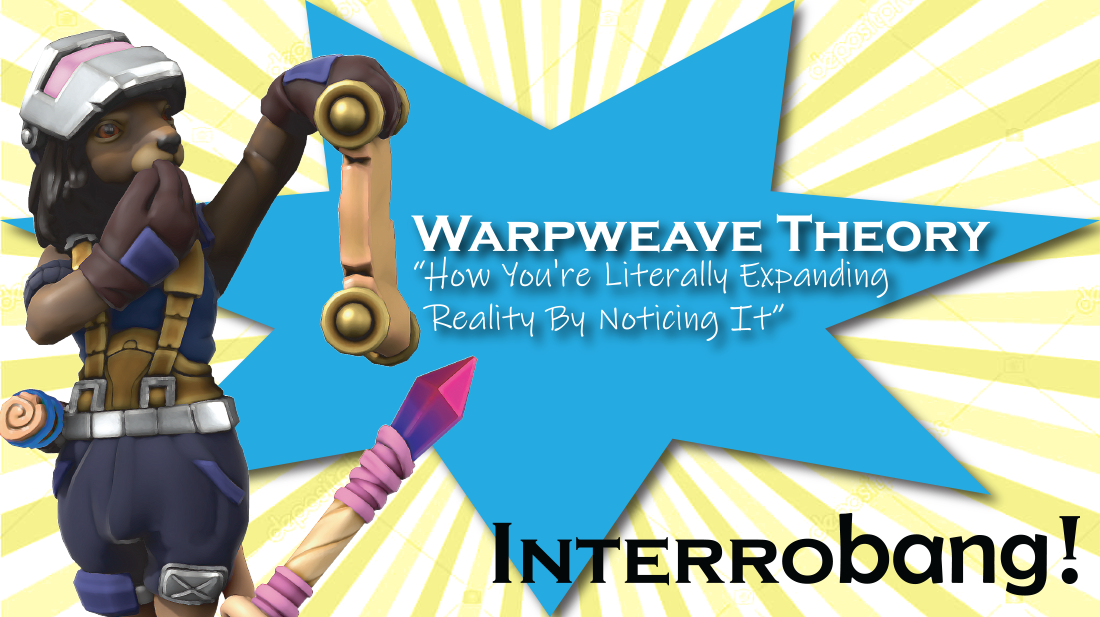Hey, everyone! Continuing last week’s trend where I talk about things I’m currently doing and relate them to Pathfinder, this week I am on vacation! Huzzah! (To give you some idea, I usually get a proper vacation once every two or three years because I use most of my “vacation money” to go to conventions. But skipping PaizoCon this year left me with some money and my folks had already rented the room so … here I am!)
Now, I don’t really enjoy relaxing outside of my home because I would rather “unwind” by sitting at my computer writing then laying out on a beach somewhere or chilling in a mountain resort, but even if you like your job / hobby work, its important to get away from it for at least a short while. The break helps you recharge your drive and creativity; in behavior analyst terms, it creates a reinforcement deprivation that makes subsequent emissions of the behavior more reinforcing. Or if you hate your job, its much-needed time away; because again in behavior analyst terms, escape is its own type of reinforcement (negative reinforcement, to be precise).
So, why am I talking about this in a Pathfinder article? Well, I strongly think that we as GMs (and sometimes as players) don’t give our PCs enough “time away” from adventure. I mean, in Reign of Winter the first couple books take place over roughly a two-to-three month period of non-stop adventure. That sort of pacing can be cool if you’re going for a Lord of the Rings style feel, but it has consequences both in terms of game mechanics and flavor that I wanted to take some time to talk about today.
Game Mechanics Consequences of No Downtime
I’m sure you don’t think about it too often, but a LOT of game mechanics in the game expect you as a player to have some downtime available to you. Here’s a brief list of examples.
- Acquiring new animal companions / familiars. If something happened to your animal companion, such as its death, it actually takes you a full 24 hours to reacquire a new creature to fill that role. If you’re a witch or shaman and you rely on your familiar to access magic, this is huge; you need that time to get a new companion critter.
- Crafting: This is probably the biggest, as crafting takes more time than anything else in the game. It is easy to say, “Oh, crafting is too powerful!” or whatever, but the fact remains that crafting is literally built into the infrastructure of several classes. Skalds and wizards both gain Scribe Scroll as a bonus feat. Gunslingers gain Gunsmith as a bonus feat. Alchemists get brew potion as a bonus feat. Keeping a break-neck pace of adventure all the time dampens the power and effectiveness of those character choices in a way that offers no real choice to the players, and as a result it is pretty weak when you allow the players to take these options, then don’t give them opportunities to use them.
- Retraining: As part of the downtime system itself, if you don’t have time to retrain, you can’t retrain. Simple as that. This can be frustrating for a PC who took an option that they later discovered wasn’t a good choice for your campaign. (Maybe they took crafting feats or ranks and found out later that you weren’t going to give them time to use them!)
- Shopping: Alright, so here’s a dirty little secret of adventure design; unless you are custom-designing your enemies to have equipment that you know your players want, the PCs are going to end up with a lot of treasure that’s useless to them. This is a sorry consequence of how the game rewards hyperspecialization with specific weapons / spells / options instead of generalization, but it is a fact nevertheless. If your fighter took all of his Weapon Focus feats with a longsword and your adventure keeps dropping axes, well, those axes are junk to your fighter no matter how many enhancement bonuses they have. This makes time to sell items and shop for new ones crucial to the ongoing success of the PCs, as Pathfinder’s math assumes that they’ll reach certain attack bonus and AC bonus benchmarks at specific points throughout the game. If you don’t give your PCs time to shop and hawk wares, you are inherently making all of your future encounters much more difficult while also dramatically lowering the power of classes that specifically choose specialized weapons / equipment. (Fighters are, without a doubt, the most affected by this, but gunslingers and swashbucklers are as well.)
Those are probably the four biggest mechanical problems that come from not giving your players downtime in your adventure, but I did mention that there are story issues as well? Let’s talk about them quick, shall we?
Flavor Consequences of No Downtime
“But Alex!” you say, “How can there be flavor consequences for having no downtime in my games? The Lord of the Rings had no downtime and it worked fine!”
Ah, my friend, but I would argue that in the Lord of the Rings, the characters don’t really “level up” in the sense that you don’t see them becoming much better than they already were at the start of the show. Merry and Pippin become more assertive, sure, but think of Legolas and Gimli. Or Aragorn. Those characters are just as skilled at fighting in The Fellowship of the Rings as they are in Return of the King. They don’t “get better,” so to speak. The truth of the matter is that when we think of improving our skills, we think of rigorous practice for months at a time to improve, and in a game without downtime that cannot happen. In Reign of Winter, my bard has gone from a 1st-level nobody to a 15th-level god of music, arguably one of the most powerful bards on Golarion, and he’s something like 19 and a half years old. That’s not a strong, linear progression, especially in terms of skills. Heck, we’ve had time where I’ve “randomly” learned new spells halfway through a dungeon with no time to really sit down or figure out how they work.
And maybe this flavor works for some games. Maybe all the PCs always have some crazy form of innate talent or grand destiny, but it certainly isn’t very realistic, and it arguably contributes to the notion that Pathfinder is a “larger than life” game, a further tick on the board supporting the idea that Pathfinder doesn’t NEED to be hyperrealistic in its rules design, and certainly that the game mechanics themselves aren’t hyperrealistic.
What To Do About Heroic Vacation?
So, I want to wrap up this article by simply stating that you as a GM know what is best for your game. After all, you know your players better than anyone else. However, it is important to consider the choices your players are making or have made when it comes to you deciding about downtime. Do your players actively seek time to craft or retrain? Do they need to find new animal buddies because you murdered their last friend? (Sorry, Fluffy….) Do your players simply need some time to decompress, maybe get to know the people living in the town that you want them to save? (That’s actually a big one; your players as people are more likely to be invested in the consequences of their adventure if you give them a choice to meet and know and learn to care about the people living there. Give them a face and all that.)
Chances are your game will benefit from having downtime. Your PCs will be better equipped, which means you can throw bigger challenges at them, and they will have a bit more attachment to your campaign world. Remember, downtime doesn’t have to mean, “Sitting around playing Economyfinder for a full session.” For example, while Player 1 is figuring out what scrolls she wants to scribe and how long it will take her, give the other three players a small roleplaying exercise in town. You’re the GM; you control the world, and you have the power to make anything fund. If only you’d use that power….
So until next time, I’m Alex Augunas and I’m always here for YOU when you need a little bit of Guidance. Take care!
Alexander “Alex” Augunas has been playing roleplaying games since 2007, which isn’t nearly as long as 90% of his colleagues. Alexander is an active freelancer for the Pathfinder Roleplaying Game and is best known as the author of the Pact Magic Unbound series by Radiance House. Alex is the owner of Everyman Gaming, LLC and is often stylized as the Everyman Gamer in honor of Guidance’s original home. Alex also cohosts the Private Sanctuary Podcast, along with fellow blogger Anthony Li, and you can follow their exploits on Facebook in the 3.5 Private Sanctuary Group, or on Alex’s Twitter, @AlJAug





